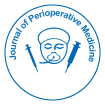
Journal of Perioperative Medicine
Open Access
ISSN: 2684-1290

ISSN: 2684-1290
Viktor Cassar, Tim Langdon, Ioanna Antoniou, James Watkin, Porfyrios Korompelis, Christine Ang, Andrew Bracewell and Bhaskar Dutta*
Background: Chest infections and other Postoperative Pulmonary Complications (PPC) are a major cause of morbidity and prolonged hospital stay following major abdominal surgery. The incidence of PPC could be as high as 20% for upper abdominal surgeries, however this is not well studied amongst patients undergoing surgery for gynaecological cancer.
Methodology: This is a single centre epidemiological study in a large tertiary gynaecological oncology centre, the Northern Gynaecological Oncology Centre (NGOC), United Kingdom. A preventing PPC Working Group was developed and a peri-operative respiratory optimisation pathway called the I-BREATHE was introduced in October 2021. In our analysis, patients who underwent a major laparotomy in 2019 (group A) prior the introduction of the intervention were captured retrospectively, whilst patients who underwent a major laparotomy between October 2021 to October 2022 (group B) were captured prospectively. The study compared the absolute incidence of postoperative chest infection, mortality and in-hospital length of stay.
Results: The study included a total of 394 patients; 237 patients were included in group A and 157 patients were included in group B. The incidence of chest infection was 15.2% in group A and 15.3% in group B (Relative Risk (RR) 1, 95%, Cumulative Incidence (CI) 0.63-1.62, p=0.98). A sub-group analysis demonstrated a significant decrease in the incidence of chest infections in smokers and ex-smokers, with reduction in incidence from 27.6% (group A) to 7.1% (group B) (RR: 0.26, 95% CI 0.065-1.032, p=0.03). There was a significant reduction in the total in-patient hospital stay and ward-based length of stay by a median of 2-days in group B compared to group A.
Conclusion: The addition of a structured peri-operative respiratory care optimisation bundle within the Enhanced Recovery After Surgery (ERAS) protocol in high-risk patients having surgery for gynaecological malignancy has been seen to be very effective in the cohort of patients with a history of smoking, with a significant reduction in the incidence of chest infections. Moreover, the implementation of these strategies has shown a significant reduction in in-patient length of stay. In view of the limitations of the study more research is needed to definitively recommend our initiative to all types of high-risk surgeries.
Published Date: 2024-12-24; Received Date: 2024-07-26